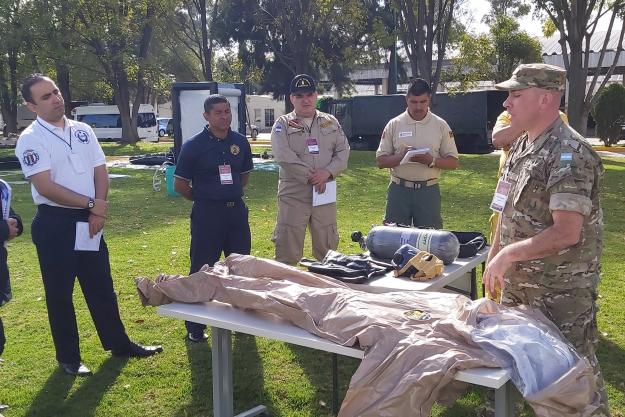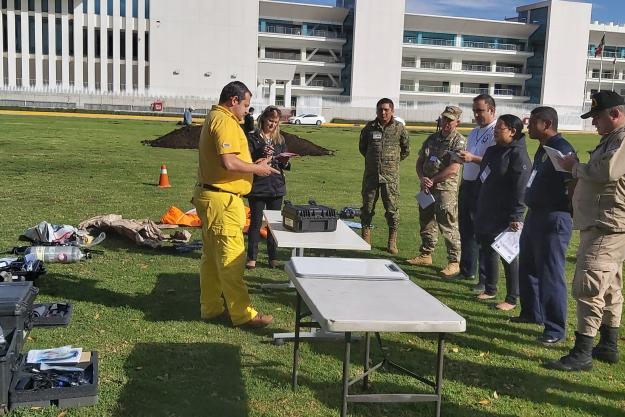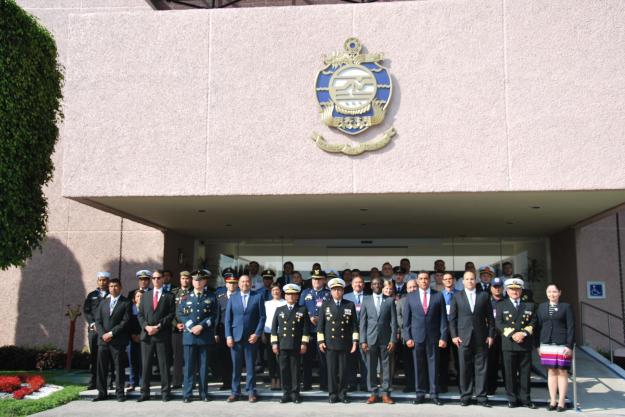
Practical exercises helped participants expand their teaching capabilities.
THE HAGUE, Netherlands – 21 November 2019 – First responders from Latin America and the Caribbean expanded their teaching capabilities during a chemical warfare agents and toxic industrial chemicals workshop held in Mexico City, Mexico from 11 to 15 November.
The training, jointly organised by the Organisation for the Prohibition of Chemical Weapons (OPCW) and the National Authority of Mexico, focused on developing rapid response and assistance capabilities following a chemical weapons attack.
The Representative of the Mexican National Authority, Captain Fernando Torres, emphasised the importance of enhancing knowledge sharing in his opening remarks: “This training builds teaching skills in order to strengthen regional preparedness in the face of chemical attacks”.
OPCW Programme Officer in the Assistance and Protection Branch, Mr Babatunde Olowookere, further highlighted: “This course will improve the sustainability of OPCW capacity building efforts that aim to strengthen regional response capabilities against chemical attacks and incidents involving toxic industrial chemicals”.
The programme was held in cooperation with the Secretariat of the Mexican Navy (SEMAR) and with technical backing from the Peruvian Centre for Chemical Information (CINQUI) and OPCW-trained instructors from Argentina, Peru, Uruguay and Spain.
Thirty-four attendees represented the following OPCW Member States: Argentina, Chile, Colombia, Costa Rica, El Salvador, Honduras, Mexico, Nicaragua, Panama, Paraguay, Peru, Spain and Uruguay.

The training-of-trainers approach allows first responders to disseminate their knowledge upon returning to their home countries.
Background
The course supports the implementation of Article X of the Chemical Weapons Convention (CWC), which concerns assistance and protection against chemical weapons.
The training-of-trainers approach helps ensure sustainable and efficient use of OPCW resources for capacity building. This course is part of the Organisation’s Instructor Development and Exchange Programme focusing on building and exchanging knowledge, skills and protocols in the area of assistance and protection.
As the implementing body for the Chemical Weapons Convention, the OPCW, with its 193 Member States, oversees the global endeavour to permanently eliminate chemical weapons. Since the Convention’s entry into force in 1997, it is the most successful disarmament treaty eliminating an entire class of weapons of mass destruction.
Over 97 per cent of all chemical weapon stockpiles declared by possessor States have been destroyed under OPCW verification. For its extensive efforts in eliminating chemical weapons, the OPCW received the 2013 Nobel Prize for Peace.

